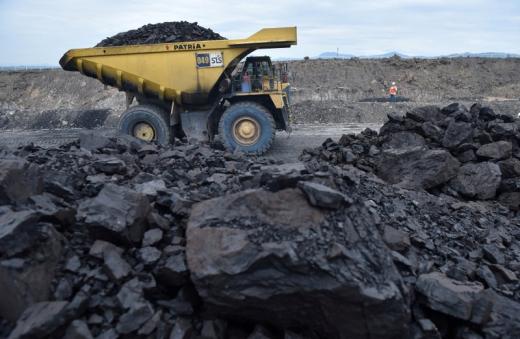Public Enterprises Minister Pravin Gordhan is threatening the South African coal mining industry with “tough conversations” about the sky-high price of coal.
At the release of Eskom’s miserable year-end results, Gordhan lashed out at the 17% increase in Eskom’s cost of primary energy and said this threefold inflation was unacceptable.
This includes coal, which increased more than 14% in unit price, according to an Eskom integrated report.
But coal producers say the power utility is largely responsible for the increase in the cost of coal.
Eskom, which delivers the vast majority of the country’s power, announced a loss of more than R20 billion at group level for the year ending on March 30. The company itself lost more than R23 billion.
Henk Langenhoven, an economist at the Minerals Council SA, said factors inside Eskom and record-high international coal prices led to the 14% increase.
He said local producers bent over backwards to help Eskom when it nearly ran out of coal last year.
In the report, Eskom admits that it used more coal per unit of electricity because of the fact that its power stations were performing poorly.
Eskom’s departing CEO Phakamani Hadebe admitted at the same event that his team had been caught by surprise when it found out that Eskom’s coal levels were critically low.
They then had to approach the industry with their tails between their legs despite a trust deficit.
Langenhoven said Eskom had only days of coal supply because previous contracts for coal supply had come to an end or had been terminated when former Eskom boss Brian Molefe decided to do away with long-term coal contracts with so-called cost-plus mines.
“We want the bread, not the bakery,” Molefe had said.
Eskom wanted to replace the long-term contracts with short- and medium-term contacts, but there were delays in concluding the contracts because, among other things, they had to be approved by National Treasury.
Eskom has also for some time demanded that its suppliers have at least 50% black shareholding, in contrast with the 26% requirement set by the Mining Charter.
These circumstances turned the whole coal mining industry upside down, and various large producers, such as Anglo American Coal, sold mines at discount prices or took steps to leave the industry.
At the meeting that the Minerals Council organised between Eskom and coal producers late last year, the producers agreed to deliver extra tonnage to increase Eskom’s stock levels, even at the cost of profitable exports.
Agreements were concluded with each individual supplier. In total, the industry delivered 16 million tons of extra coal.
According to Eskom’s annual report, it cost R2.5 billion just to build up its coal stocks again.
Eskom was negotiating with its back against the wall, which is never a good point of departure, said Langenhoven.
In addition, the coal price at Richards Bay was at a high.
In October last year, it cost R1 457.69 per ton, even higher than during the 2008 commodities boom. The price had reduced to R917.91 per ton in January this year.
Langenhoven emphasised that mining is a long-term industry.
The interventions that had to help Eskom out of its crisis were short-term actions and were therefore more expensive. Plus Eskom was forced to conclude contracts when prices were sky high.
As a result of the breakdown in trust with the utility, some of the mines only invested in coal export. To suddenly gear up, on short notice, to supply Eskom again cost money, he said.
Presently, there are buyers, especially in India, who are interested in the coal that used to be supplied to Eskom only.
Langenhoven said that above and beyond the coal that the industry delivered to Eskom at the push of a button, the Minerals Council also appointed a technical committee at its own cost to advise Gordhan about what needed to be done to stabilise the power utility’s fleet of coal-fired power stations.
He said the relationship between the industry and Eskom had largely been repaired and that a return to long-term coal supply contracts would bring more certainty about Eskom’s coal costs.
Source: City Press 24
Also Read:
Why Western Africa is the next Gold mining frontier

